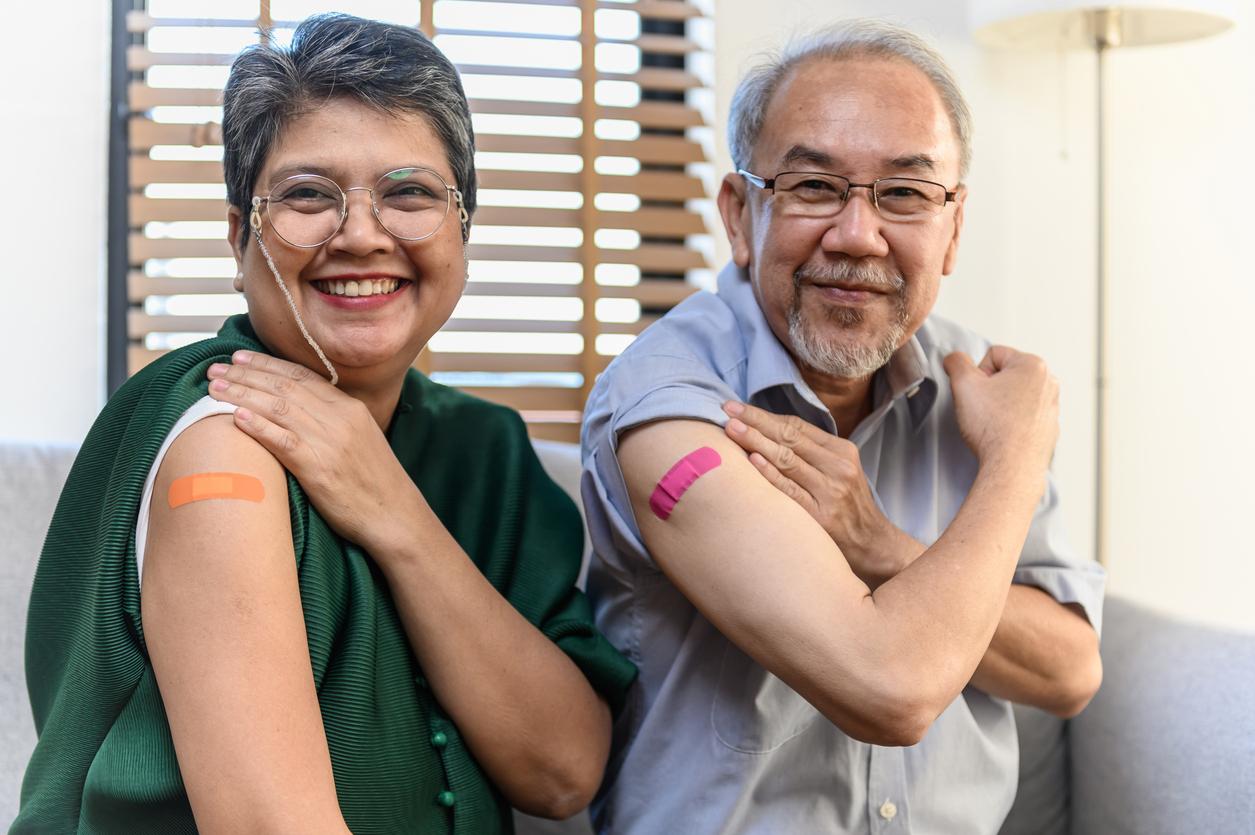A new study shows good 2023-24 COVID-19 vaccine effectiveness in adults against medically attended COVID-19, especially against critical illness.
The study, published yesterday in JAMA Network Open, is based on outcomes seen among US patients in the Centers for Disease Control and Prevention's VISION Network during the XBB and JN.1 Omicron subvariant waves.
Overall, the study used electronic health record data, with laboratory and vaccination records, from September 21, 2023, to August 22, 2024, and included 345,639 emergency department (ED)/urgent care (UC) encounters and more than 111,931 hospitalizations in adults across 230 hospitals and 362 EDs and UC centers. Healthcare systems in Oregon, Washington, Colorado, Utah, Indiana, Minnesota, Wisconsin, and California were included.
The average patient age was 53, 60% were female, and 61% were non-Hispanic White. Most encounters (69%) occurred during JN.1 predominance, and December 2023 had the highest proportion of encounters (13%).
Among the adults with COVID-19–like illness and available test results, 10,380 (9%) were positive for SARS-CoV-2.
Protection highest 2 months after shot
During 7 to 299 days after vaccination, vaccine effectiveness (VE) was 29% (95% confidence interval [CI], 25% to 33%) against COVID-19–associated hospitalization, and 48% (95% CI, 40% to 55%) against COVID-19–associated critical illness.
But when looking at the first 2 months following vaccination, VE was much higher. VE against ED and UC encounters was 49% (95% CI, 46% to 52%). VE against hospitalization was 51% (95% CI, 46% to 56%), and it was 68% against critical illness (95% CI, 56% to 76%).
By 180 dates after vaccination, however, VE waned considerably, to -7% and -4% for ED/UC visits and hospitalizations, respectively.
Data likely an underestimate
"Results in this analysis, which did not control for prior infection, suggest that the risk of COVID-19 among people who are more than 6 months from their 2023 to 2024 vaccination appears to be higher than unvaccinated people who may have had more recent prior infection," the authors explained. "However, controlling for prior SARS-CoV-2 infection generally increases measured VE, lending further evidence that the measured VE in this analysis is likely an underestimate of vaccination's true protection."
The study comes as the United States prepares to face the next respiratory season with far fewer Americans recommended to receive a seasonal COVID-19 vaccine, including most healthy young and middle-aged adults who have no underlying risk factors.
These results are both reassuring and instructive for patient care.
“These results are both reassuring and instructive for patient care,” said study co-author Shaun Grannis, MD, vice president for data and analytics at Regenstrief Instititue and a professor at the Indiana University School of Medicine, in a press release from Regensteif. "This study demonstrates that the updated COVID-19 vaccines continue to offer significant protection against severe outcomes like hospitalization and critical illness, especially in the months immediately following vaccination."



















